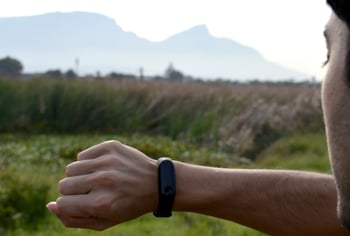The Change in Workplace Wellness Programs Due to COVID-19

The pandemic has transformed the way we work, with casual clothes, Zoom calls, and virtual happy hours becoming a regular part of our working day. With the benefits of remote working comes challenges and employers need to address these before they become big problems.
Uncertainty, stress, and isolation all take their toll on employee mental health, and it’s up to employers to offer support. Flexible workplace wellness programs are becoming more important as we all adapt to a rapidly evolving workplace.
The pandemic has affected employee mental health and wellness programs must adapt to provide the proper resources for these new challenges.
The Rise of Health and Wellness
The wellness industry has been booming for years. It grew from $3.7 trillion in 2015 to $4.5 trillion in 2018 alone as people embraced FitBits, meditation apps, and keto recipes. Wellness has become a firm part of our lives, so it makes sense to incorporate it into the workplace.
Employers are increasingly seeing the value in employee wellness programs as both a way to keep workers safe, happy, and productive and as a way to attract new talent. No longer limited to dental plans, companies are embracing a range of holistic wellness programs for the body and mind, from meditation classes to healthy eating advice and coaching.
Why We Need Wellness Programs Now More Than Ever
This development is well overdue. According to one study, 83% of US employees suffer from work-related stress, which in extreme cases can lead to “burnout”, a condition defined as a “state of exhaustion in which one is cynical about the value of one’s occupation and doubtful of one’s capacity to perform”. A recent Gallup survey indicated that one in four employees feel burned out at work very often or always, something that’s particularly prevalent among young workers.
COVID-19 has escalated the problem. Concerns over job performance, coupled with the stresses of working from home have increased anxiety levels. 
With no organized breaks and no commute, there’s no natural break or end to the day, which has resulted in some people being unable to switch off; meaning their work-life blends into their home life, resulting in exhaustion and stress.
Remote working has also been linked to increased feelings of isolation. 44% of people in an EIU survey said caring responsibilities and distractions were a big challenge while working remotely, and this figure almost doubled among working mothers. One out of eight people cited isolation as their biggest struggle something that’s a known risk factor in a range of mental illnesses, including anxiety and depression. The same poll revealed one-third of respondents did not feel adequately supported by their employer.
Protecting mental health is becoming a priority for business leaders, and not only out of a sense of duty: for every US$1 invested in treatment for common mental health disorder, there is a return of US$4 in improved health and productivity.
Why a Holistic Well-Being Solution is Vital in a Post-COVID World
From free gym memberships to online coaching and workplace mindfulness, promoting holistic wellness can bring benefits, including increased productivity, a more motivated workforce, and higher retention. But only if it’s done correctly.
Wellness strategies need to consider work schedules, accessibility options, the skills and lifestyles of workers, and their abilities. Employers should also think about how they can make wellness an integral part of the company’s culture, and something all employees—including leaders—are taking an active part in.
For example, managers can promote a healthy work-life balance; rather than praising employees for burning the midnight oil, leaders should encourage employees to log off at the end of the working day and refrain from looking at work email when they’re taking time off. The pressure to be “always on” has been linked to higher stress for not just employees, but managers as well.
burning the midnight oil, leaders should encourage employees to log off at the end of the working day and refrain from looking at work email when they’re taking time off. The pressure to be “always on” has been linked to higher stress for not just employees, but managers as well.
“Managers themselves have been under tremendous pressure to cope and support their team during this time of change and uncertainty. The impact of Covid-19 has seen people’s resilience pushed to its limits”, says Sara Maude, a workplace wellbeing specialist. “Now is the time to invest in equipping managers with the knowledge and skills on how to spot signs of mental health issues among their team members and have confident and effective conversations that will help get an employee to a better place. The greatest fear in managers when it comes to managing mental health in the workplace is of getting things wrong or making things worse. Management mental health awareness training can dispel that fear, enabling managers to be proactive in tackling mental health in the workplace and supporting their teams in the best way possible.”
The Importance of Offering a Range of Programs to Suit a Personalized Need
When it comes to wellness, there’s no one-size-fits-all approach. While one employee might jump at a step challenge or gym membership another might see more value in mindfulness coaching or smoking cessation. If the service they want isn’t available, they won’t engage with the program. This is why it’s important that organizations offer employees a range of options to suit their needs. CoreHealth's well-being technology is flexible and customizable to help provide an array of programs personalized to an employees need. 
This is an example of some of the different programs available through CoreHealth's platform and businesses that lack this range of options or virtual capabilities could fall behind and be seen as outdated by both current and prospective employees.
The effectiveness of health and wellness programs is heavily reliant on a company’s ability to adapt to life during and after the pandemic. This means investing in wellness technology, equipping managers with the skills they need to support employees, and making sure remote employees are supported to better take care of their physical and mental health.
If you would like to offer a personalized, holistic wellness program to leverage the effects of the pandemic and optimize workplace wellness, contact us today. We will be happy to connect you with the right resources.
About CoreHealth Technologies
CoreHealth Technologies Inc. is a total well-being technology company trusted by global providers to power their health and wellness programs. Our wellness portals help maximize health, engagement and productivity for 3+ million employees worldwide. We believe people are the driving force of organizations and supporting them to make behavior changes to improve employee health is in everyone’s best interest. With the most flexibility, customizations and integrations of any software in its class, CoreHealth’s all-in-one wellness platform helps grow great wellness companies. Simple to sophisticated, based on you. For more information, visit the CoreHealth website.
About The Author
Your Friends in Health at CoreHealth
CoreHealth by Carebook's Health and Wellness Team works hard to bring our readers informative and research validate health and well-being blog articles and resources that support your workplace wellness culture and wellness technology purchase decision.


